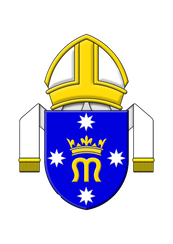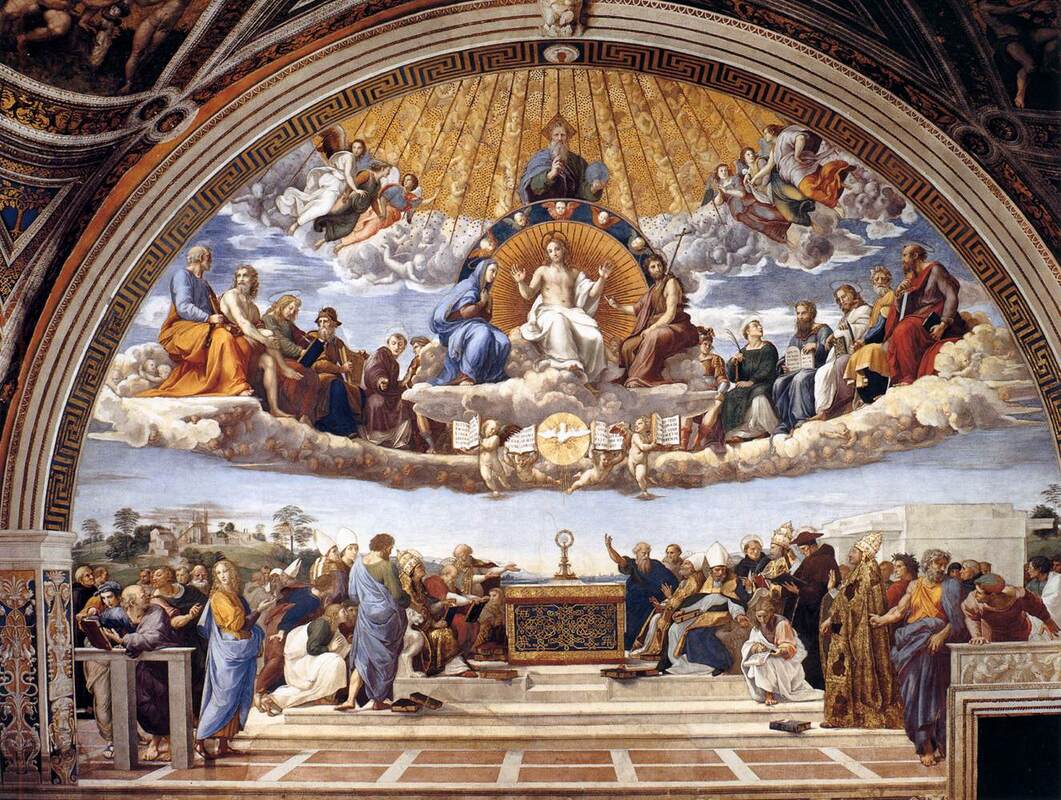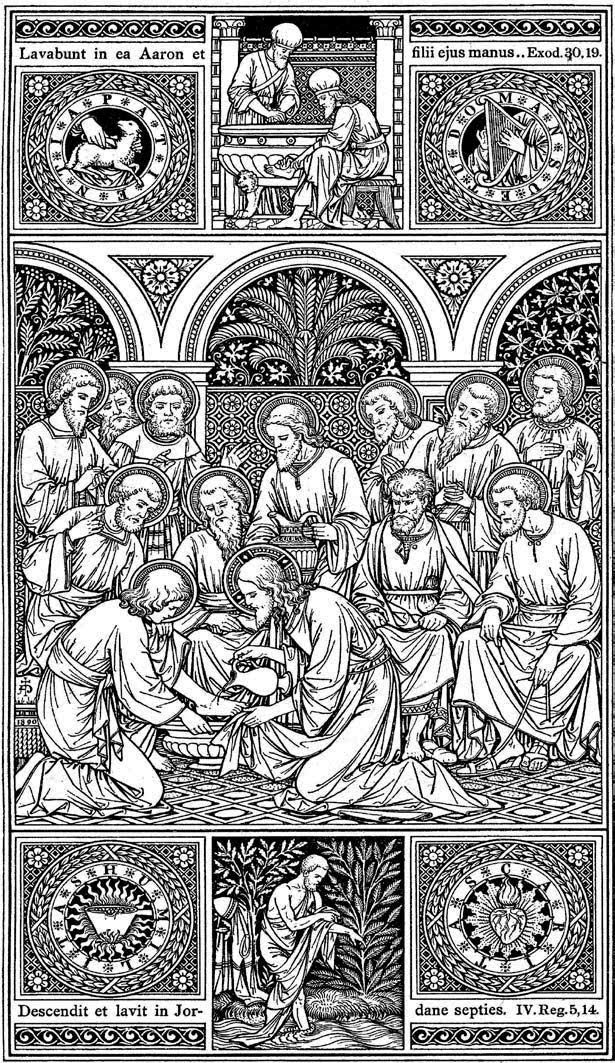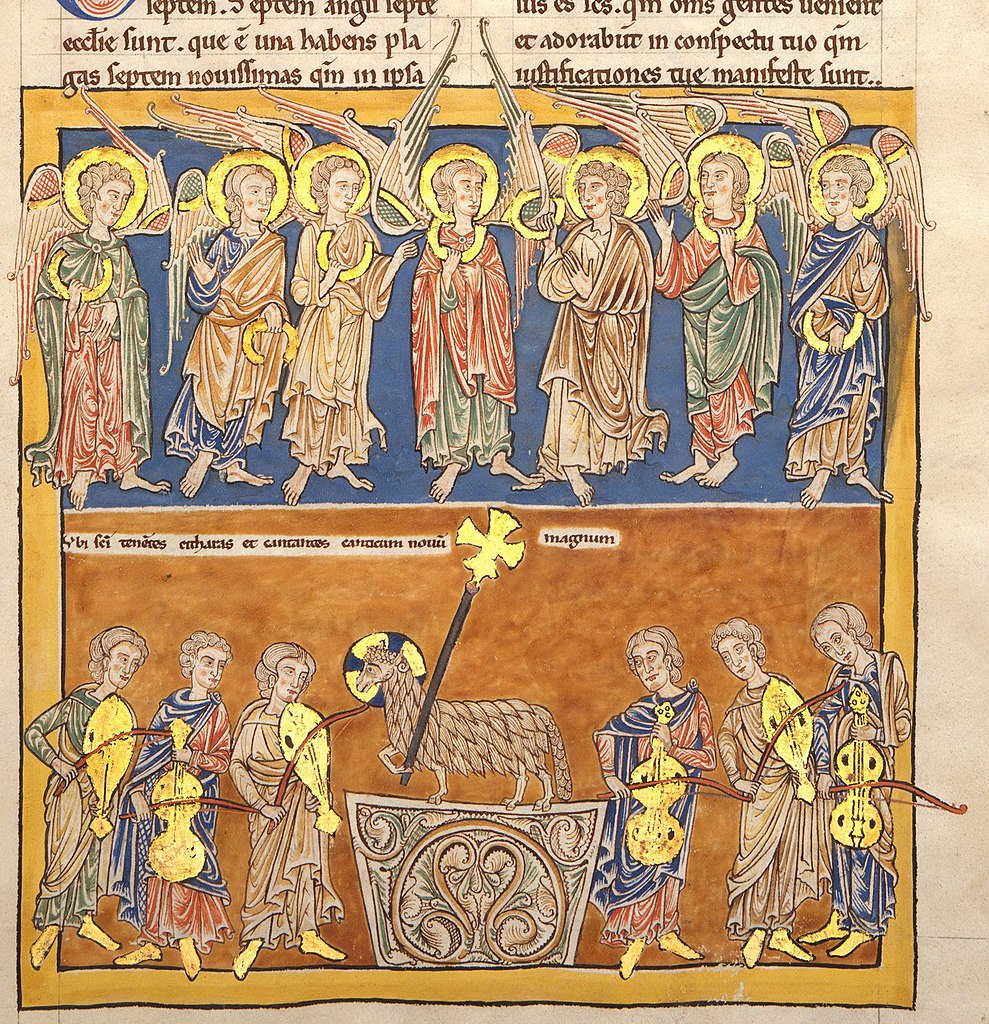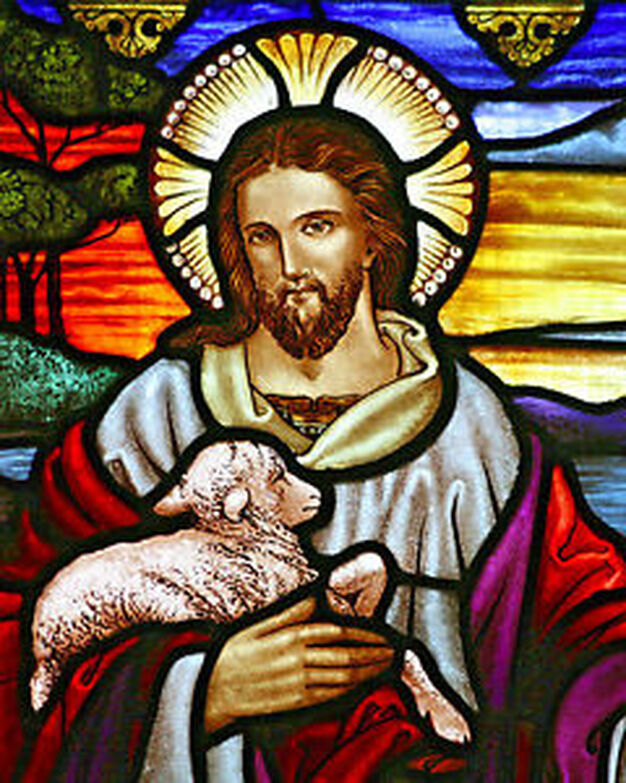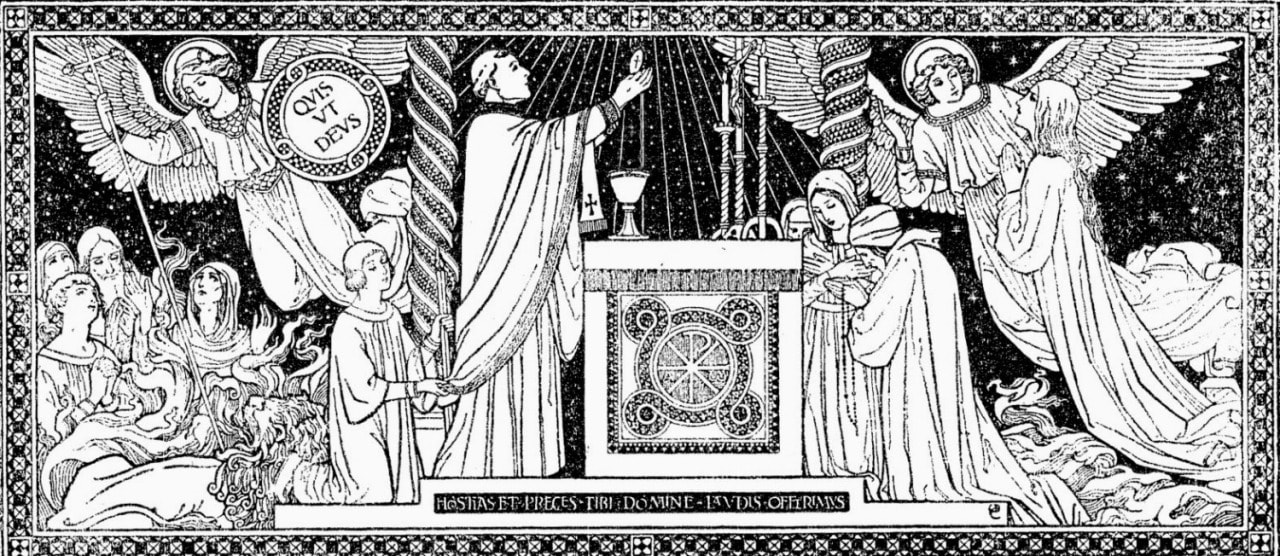The Sacrament of UnityThe unity of the Mystical Body: the Eucharist makes the Church. Those who receive the Eucharist are united more closely to Christ. Through it Christ unites them to all the faithful in one body - the Church. Communion renews, strengthens, and deepens this incorporation into the Church, already achieved by Baptism. In Baptism we have been called to form but one body. The Eucharist fulfills this call: "The cup of blessing which we bless, is it not a participation in the blood of Christ? The bread which we break, is it not a participation in the body of Christ? Because there is one bread, we who are many are one body, for we all partake of the one bread:" (Catechism of the Catholic Church, §1396).
Communion in the OrdinariateThe Personal Ordinariates are in Full Communion with the Catholic Church under the authority of the Apostolic See. Our Form of the Mass is slightly different from the regular "Ordinary Form" Masses that you would attend in most Catholic parishes. See the Our Liturgy page for further information on this.
Any Catholic who is properly disposed, may receive the Sacraments within the Personal Ordinariate. The most appropriate way of receiving at the Ordinariate Mass is kneeling along the altar step, and receiving the Host on the tongue, and the Precious Blood by sipping from the Chalice. Unlike the Ordinary Form of the Mass, in the Divine Worship Form of the Mass, the Ministers bring the Sacred Species to you as you kneel. This gives you the opportunity to pause and reflect on this solemn moment of receiving Jesus in the Blessed Sacrament. The Chalice will not be handed to you, but you may lightly guide it to your lips to assist the Minister. When you have received the Host, and you intend to receive also from the Chalice, simply wait where you are, there is no need to move. The form of the words in the distribution of Holy Communion may be: "The Body of Christ", or "The Blood of Christ," to which the communicant may respond, "Amen," as in the Ordinary Form of the Mass. However, a second form may be used in the distribution of Holy Communion, which is: "The Body of our Lord Jesus Christ, which was given for thee, preserve thy body and soul unto everlasting life." or, "The Blood of our Lord Jesus Christ, which was shed for thee, preserve thy body and soul unto everlasting life." To this second formula, there is no need to respond, "Amen." For those who are not Catholic, or for those Catholics not properly disposed to receive, we would ask you to remain in your pew and make an Act of Spiritual Communion, especially praying for the intention of Christian Unity. |
Act of Spiritual Commuion
In union, dear Lord, with all the faithful at every altar of thy Church where the blessed Body and Blood are being offered to the Father, I desire to offer thee praise and thanksgiving. I believe that thou art truly present in the Most Holy Sacrament. And since I cannot now receive thee sacramentally, I embrace thee with all the affections of my soul. Let me never be separated from thee. Let me live and die in thy love. Amen.
On Communion, from the Catechism of the Catholic Church
"Take this and eat it, all of you": communion
1384 The Lord addresses an invitation to us, urging us to receive him in the sacrament of the Eucharist: "Truly, I say to you, unless you eat the flesh of the Son of man and drink his blood, you have no life in you."
1385 To respond to this invitation we must prepare ourselves for so great and so holy a moment. St. Paul urges us to examine our conscience: "Whoever, therefore, eats the bread or drinks the cup of the Lord in an unworthy manner will be guilty of profaning the body and blood of the Lord. Let a man examine himself, and so eat of the bread and drink of the cup. For any one who eats and drinks without discerning the body eats and drinks judgment upon himself."218 Anyone conscious of a grave sin must receive the sacrament of Reconciliation before coming to communion.
1386 Before so great a sacrament, the faithful can only echo humbly and with ardent faith the words of the Centurion: "Domine, non sum dignus ut intres sub tectum meum, sed tantum dic verbo, et sanabitur anima mea" ("Lord, I am not worthy that you should enter under my roof, but only say the word and my soul will be healed."). And in the Divine Liturgy of St. John Chrysostom the faithful pray in the same spirit:
O Son of God, bring me into communion today with your mystical supper. I shall not tell your enemies the secret, nor kiss you with Judas' kiss. But like the good thief I cry, "Jesus, remember me when you come into your kingdom."
1387 To prepare for worthy reception of this sacrament, the faithful should observe the fast required in their Church. Bodily demeanour (gestures, clothing) ought to convey the respect, solemnity, and joy of this moment when Christ becomes our guest.
1388 It is in keeping with the very meaning of the Eucharist that the faithful, if they have the required dispositions, receive communion when they participate in the Mass. As the Second Vatican Council says: "That more perfect form of participation in the Mass whereby the faithful, after the priest's communion, receive the Lord's Body from the same sacrifice, is warmly recommended."
1389 The Church obliges the faithful to take part in the Divine Liturgy on Sundays and feast days and, prepared by the sacrament of Reconciliation, to receive the Eucharist at least once a year, if possible during the Easter season. But the Church strongly encourages the faithful to receive the holy Eucharist on Sundays and feast days, or more often still, even daily.
1390 Since Christ is sacramentally present under each of the species, communion under the species of bread alone makes it possible to receive all the fruit of Eucharistic grace. For pastoral reasons this manner of receiving communion has been legitimately established as the most common form in the Latin rite. But "the sign of communion is more complete when given under both kinds, since in that form the sign of the Eucharistic meal appears more clearly." This is the usual form of receiving communion in the Eastern rites.
1384 The Lord addresses an invitation to us, urging us to receive him in the sacrament of the Eucharist: "Truly, I say to you, unless you eat the flesh of the Son of man and drink his blood, you have no life in you."
1385 To respond to this invitation we must prepare ourselves for so great and so holy a moment. St. Paul urges us to examine our conscience: "Whoever, therefore, eats the bread or drinks the cup of the Lord in an unworthy manner will be guilty of profaning the body and blood of the Lord. Let a man examine himself, and so eat of the bread and drink of the cup. For any one who eats and drinks without discerning the body eats and drinks judgment upon himself."218 Anyone conscious of a grave sin must receive the sacrament of Reconciliation before coming to communion.
1386 Before so great a sacrament, the faithful can only echo humbly and with ardent faith the words of the Centurion: "Domine, non sum dignus ut intres sub tectum meum, sed tantum dic verbo, et sanabitur anima mea" ("Lord, I am not worthy that you should enter under my roof, but only say the word and my soul will be healed."). And in the Divine Liturgy of St. John Chrysostom the faithful pray in the same spirit:
O Son of God, bring me into communion today with your mystical supper. I shall not tell your enemies the secret, nor kiss you with Judas' kiss. But like the good thief I cry, "Jesus, remember me when you come into your kingdom."
1387 To prepare for worthy reception of this sacrament, the faithful should observe the fast required in their Church. Bodily demeanour (gestures, clothing) ought to convey the respect, solemnity, and joy of this moment when Christ becomes our guest.
1388 It is in keeping with the very meaning of the Eucharist that the faithful, if they have the required dispositions, receive communion when they participate in the Mass. As the Second Vatican Council says: "That more perfect form of participation in the Mass whereby the faithful, after the priest's communion, receive the Lord's Body from the same sacrifice, is warmly recommended."
1389 The Church obliges the faithful to take part in the Divine Liturgy on Sundays and feast days and, prepared by the sacrament of Reconciliation, to receive the Eucharist at least once a year, if possible during the Easter season. But the Church strongly encourages the faithful to receive the holy Eucharist on Sundays and feast days, or more often still, even daily.
1390 Since Christ is sacramentally present under each of the species, communion under the species of bread alone makes it possible to receive all the fruit of Eucharistic grace. For pastoral reasons this manner of receiving communion has been legitimately established as the most common form in the Latin rite. But "the sign of communion is more complete when given under both kinds, since in that form the sign of the Eucharistic meal appears more clearly." This is the usual form of receiving communion in the Eastern rites.
Visible Unity: Catholics are united together with the Pope
Father Mike Schmitz from Ascension Presents discusses the necessity of why Catholics have a Pope.
